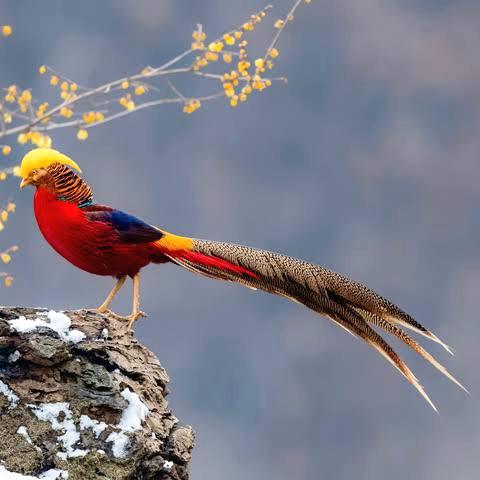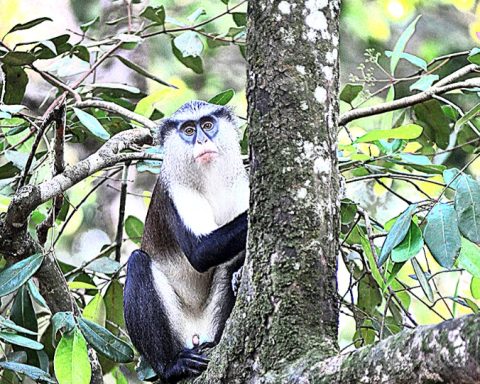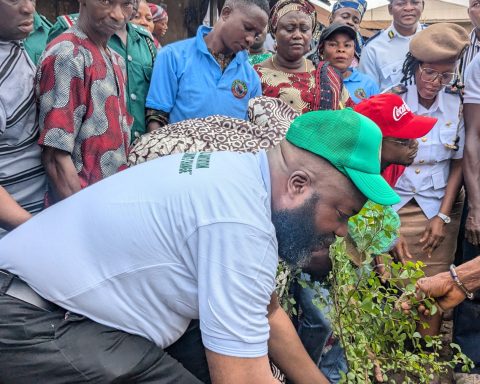
Bird watching says Tourism icon Otunba Olawanle Akinboboye, is something that we often take for granted. He said that, as a tourism product, it is a sharp departure from the products he had spoken about in previous weeks.
He then asked if I know the National bird of Nigeria. I simply confessed that I do not. Though I had the eagle on my mind. He siad the answer, is actually the West African Crowned Crane, which is also known as the black crowned crane. He noted that the crane was found in the Hadejia – Nguru wetlands in Jigawa and Yobe states. Sadly this bird, as with the eagle, is now on the list of Nigeria’s endangered species.
Otunba Akinboboye then opined that if we included bird watching amongst our tourism offerings, it would encourage conservationism. It would therefore reduce the risk of any bird indigenous to Nigeria becoming extinct. If rural communities realizes that these birds gave rise to economic benefits and provides them with steady employment as tour guides, porters and so on, they would be less likely, to randomly hunt these birds into oblivion.
Otunba Akinboboye noted that there are 975 bird species in Nigeria of which at least 126 are migrant and 4 were, until recently, classified as endemic, which means they could only be found in Nigeria .
These rare birds are the ‘Jos Plateau Indigobird, which is a small black finch with a pale bill, discovered on the Jos plateau in northern Nigeria in 1968, the Rock Firefinch, which was first sighted on the Jos Plateau in 1993 , the Anambra Waxbill which is an estrildid finch found in the wetlands of southern Nigeria and Benin and the Ibadan malimbe which was first sighted in 1951 and is currently classified as endangered.
However, both the Jos Plateau Indigobird and the Rock Firefinch were recently sighted in Cameroon, which means they can be seen outside Nigeria and aren’t endemic to the country. However, due to their limited spread, bird enthusiasts who are focused on seeing rare birds would still want to come to Nigeria to see these unique creatures.

Otunba Akinboboye mentioned that bird-watching has become one of the world’s fastest-growing tourist activities in recent years.
He emphasized that, with the rise of eco – tourism, many international tourists are focusing on tour packages that would bring them closer to nature, particularly, when they feel that the revenue from their visits would help bring species back from the brink of extinction.
He revealed that efforts are being made in Colombia, which in 2023 had the world’s highest number of bird species, to set up new bird-watching trails in the hopes of attracting visitors from across the country and abroad.
One study estimates that tourism activities related to bird-watching in Columbia could generate 7,500 jobs and contribute $9 million to its economy.
He also noted that, in the US birdwatchers spent over US $41 million on bird watching equipment and tour packages.
Around the world, about 3 million international trips are taken for bird watching each year. Migratory Birds tourism is a market growing at an accelerated pace, with the largest share coming from Europe.
He noted that there is a category of birdwatchers known as tweeters who are mostly older people in the developed world, who focus on seeing as many different species of rare birds as possible. Obviously these enthusiasts could be a tourism target for Nigeria.
Otunba Akinboboye noted that, although he had never imagined he would become a bird watcher, he had actually become fascinated watching the bird life he regularly saw at his resort; La Campagne Tropicana Beach Resort.
Apart from the crows that struts on the beach front like landlords, it is usual to see different varieties of hawks and eagles skimming over the lagoon and sea catching fishes. He said he is particularly fascinated by the two varieties of kingfishers he regularly sees at the resort. One was cloaked in the vibrant blue and green hues that immediately comes to mind when you think of kingfishers, while the other is black and white.
He also spoke of a migratory bird that comes to the beach front of La Campagne Tropicana Beach Resort every few years and whose presence, the surrounding communities considered a harbinger of good luck.

Otunba Akinboboye said he is aware that in Nigeria there are a number of bird clubs. This includes the Jos Bird Club, the Lokoja Bird Club, the Abuja Bird Club, the Ilorin Bird Club, the Kano Bird Club, the Rubiku Bird Club in Lafia, the Zaria Bird Club, the Shendam Bird Club in Plateau and the Ibom Bird Club in Akwa Ibom.
He noted that these bird clubs are in a position to work with travel agents to provide bird watching tour ideas that would allow international tourists visit Nigeria to see certain birds on their bucket lists.
He mentioned that, by putting together bird watching tours, Nigeria would be taking advantage of our advantages while expanding the scope of our tourism market.
Otunba Olawanle Akinboboye then pointed out that, he hopes that some young entrepreneurs would look into this issue with a view to offering a niche product as part of Nigeria’s tourism offerings.

































